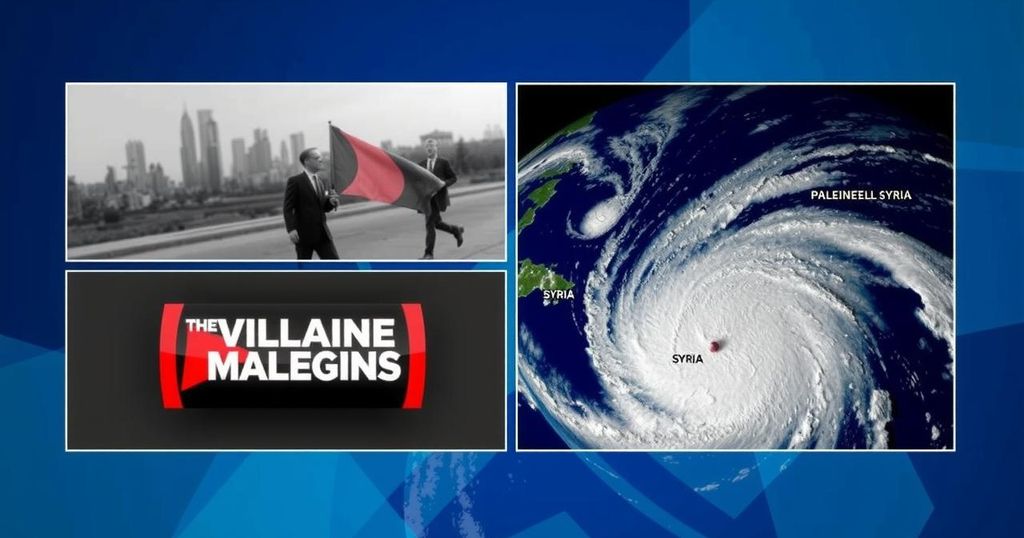This report outlines the humanitarian situations in Ukraine, Gaza, Syria, and Southeast Africa, detailing the challenges faced by displaced and affected populations. Key points include Tom Fletcher’s humanitarian efforts in Ukraine, ongoing aid restrictions in Gaza, the volatile situation in Syria, and the impact of Tropical Cyclone Dikeledi in Southeast Africa. Urgent international assistance is necessary to address these crises effectively.
The Under-Secretary-General for Humanitarian Affairs, Tom Fletcher, is currently visiting Ukraine to engage with those impacted by the ongoing conflict and coordinate with local authorities on humanitarian efforts. During his recent discussions in Zaporizhzhia, he witnessed the devastation caused by missile attacks on civilian infrastructure, including a medical facility. Fletcher also toured essential facilities, such as a newly constructed underground school designed to protect students from further violence.
In Dnipro, Fletcher visited a collective site for displaced individuals, commending the support provided to communities in the front-line areas of Donetsk. His itinerary includes a planned trip to Kharkiv, where he will collaborate with Filippo Grandi, the head of the UN Refugee Agency, to announce humanitarian and refugee response plans aimed at addressing the urgent needs of affected populations.
In the Occupied Palestinian Territory, the humanitarian crisis in Gaza continues to intensify. The UN Office for the Coordination of Humanitarian Affairs (OCHA) reports on the severe restrictions imposed by Israeli authorities, which hinder vital aid deliveries. Only a fraction of UN-planned humanitarian movements were permitted recently, leading to critical shortages of food, water, and basic sanitation facilities. Displaced populations are increasingly vulnerable, with new evacuation orders affecting thousands.
In Syria, ongoing hostilities impede humanitarian efforts, especially in water-scarce regions like Aleppo and Deir-ez-Zor. Despite ongoing vaccination campaigns to address cholera outbreaks, challenges remain due to security issues and disrupted communication services in various areas.
The situation is similarly dire in Southeast Africa as Tropical Cyclone Dikeledi has caused significant destruction, affecting over 5,200 people in Madagascar and leading to casualties and displacements. Efforts are underway to provide humanitarian assistance, but additional funding is urgently sought to meet the needs of those impacted by both Cyclone Dikeledi and the recent Cyclone Chido in Mozambique.
The current humanitarian crises in Ukraine, Gaza, Syria, and Southeast Africa underscore the dire need for international assistance and coordination. In Ukraine, the conflict has resulted in widespread displacement and infrastructure damage, prompting urgent responses from the UN and related organizations. Similarly, Gaza faces a humanitarian catastrophe exacerbated by ongoing hostilities, restricting civilian access to essential services. In Syria, the complex security landscape complicates relief efforts, particularly for water and health services. Lastly, Tropical Cyclone Dikeledi’s impact in Southeast Africa highlights the vulnerabilities exacerbated by natural disasters, calling for a robust response to mitigate suffering and restore livelihoods.
In summary, the report highlights critical humanitarian challenges across various regions, emphasizing the urgent need for coordinated international aid and action. In Ukraine, the ongoing conflict necessitates an enhanced humanitarian response to assist displaced individuals and restore vital services. In Gaza, the alarming restrictions on aid delivery require immediate attention to alleviate the suffering of civilians. Syria’s volatile conditions further complicate relief efforts for exposed populations. Finally, the aftermath of Tropical Cyclone Dikeledi in southeastern Africa highlights the need for continued support and resource mobilization to assist those affected by natural disasters. Urgent action and funding are essential in addressing these pressing humanitarian crises across the globe.
Original Source: www.unocha.org






